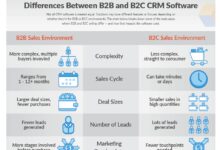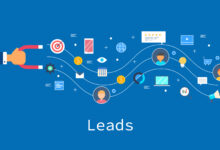Lead Generation CRM Software: 7 Powerful Tools to Skyrocket Sales
In today’s hyper-competitive market, finding and converting leads is the lifeblood of any growing business. That’s where lead generation CRM software comes in—your ultimate weapon to capture, manage, and convert prospects efficiently.
[ez-toc]
What Is Lead Generation CRM Software?

Lead generation CRM software combines the power of customer relationship management (CRM) with tools specifically designed to attract, capture, and nurture potential customers. Unlike traditional CRMs that focus on managing existing relationships, these platforms are built to help businesses proactively grow their sales pipeline.
Core Functions of Lead Generation CRM Systems
These platforms are engineered to automate and streamline the entire lead lifecycle—from initial contact to conversion. Key functions include lead capture, lead scoring, automated follow-ups, and integration with marketing tools.
- Lead Capture: Automatically collects contact information from website forms, landing pages, chatbots, and social media.
- Lead Scoring: Assigns values to leads based on behavior, demographics, and engagement to prioritize follow-up.
- Workflow Automation: Sends personalized emails, assigns tasks, and triggers notifications based on user actions.
How It Differs from Traditional CRM
While traditional CRM systems like Salesforce or HubSpot focus on managing customer interactions post-sale, lead generation CRM software emphasizes pre-sale activities. It’s not just about storing data—it’s about actively finding and qualifying prospects.
“A CRM that only manages existing clients is like a car with no engine. Lead generation CRM adds the horsepower to drive growth.” — SalesTech Expert, Jane Rivera
Why Lead Generation CRM Software Is a Game-Changer
Businesses that leverage lead generation CRM software see faster sales cycles, higher conversion rates, and improved team productivity. These tools eliminate manual data entry, reduce lead leakage, and ensure no opportunity slips through the cracks.
Boosts Sales Efficiency
Sales teams spend less time chasing unqualified leads and more time closing deals. With automated lead assignment and follow-up sequences, reps can focus on high-potential prospects.
- Reduces time spent on administrative tasks by up to 40% (source: Salesforce State of Sales Report).
- Enables real-time tracking of lead status and engagement history.
- Integrates with calendars and email to sync activities automatically.
Improves Marketing and Sales Alignment
One of the biggest challenges in B2B growth is the gap between marketing and sales. Lead generation CRM software bridges this divide by providing shared visibility into lead quality and campaign performance.
- Marketing teams can see which campaigns generate the most qualified leads.
- Sales teams receive better-qualified leads, increasing trust in marketing efforts.
- Shared dashboards foster collaboration and data-driven decision-making.
Top 7 Lead Generation CRM Software Platforms in 2024
Choosing the right lead generation CRM software can make or break your growth strategy. Here’s a breakdown of the top seven platforms that dominate the market in 2024, based on features, scalability, and user satisfaction.
1. HubSpot CRM
HubSpot CRM is a leader in inbound marketing and lead generation. Its free tier offers robust tools for small businesses, while its paid plans scale seamlessly for enterprise use.
- Features: Email tracking, meeting scheduling, live chat, and lead capture forms.
- Integration: Works with over 1,000 apps including Gmail, Slack, and Facebook Ads.
- Best for: Startups and mid-sized companies focused on inbound lead generation.
Learn more at HubSpot CRM.
2. Salesforce Sales Cloud
Salesforce remains the gold standard for CRM platforms, and its Sales Cloud is packed with lead generation capabilities powered by AI and automation.
- Features: Einstein AI for lead scoring, lead assignment rules, and predictive analytics.
- Integration: Extensive AppExchange ecosystem with thousands of third-party tools.
- Best for: Large enterprises needing customizable, scalable lead management.
Explore Salesforce at Salesforce Sales Cloud.
3. Zoho CRM
Zoho CRM offers an affordable yet powerful solution for businesses looking to generate leads without breaking the bank.
- Features: Webforms, social media integration, AI-powered assistant (Zia), and workflow automation.
- Integration: Native integration with Zoho’s entire suite (Mail, Campaigns, Desk).
- Best for: Small to medium businesses with tight budgets.
Visit Zoho CRM for more.
4. Pipedrive
Pipedrive is built for sales-focused teams who want a visual pipeline to track leads from first contact to close.
- Features: Visual sales pipeline, lead import from LinkedIn, email integration, and activity reminders.
- Integration: Connects with Mailchimp, Google Workspace, and Zapier.
- Best for: Sales-driven startups and SMBs.
Check out Pipedrive.
5. ActiveCampaign
ActiveCampaign blends CRM, email marketing, and automation into a single platform ideal for lead nurturing.
- Features: Behavioral tracking, dynamic content, automation workflows, and site tracking.
- Integration: Shopify, WordPress, and Facebook Pixel.
- Best for: E-commerce and service-based businesses focused on automation.
Learn more at ActiveCampaign.
6. Close CRM
Close CRM is designed for high-volume sales teams that rely on phone and email outreach to generate leads.
- Features: Built-in calling and SMS, automated sequences, lead scoring, and dialer integration.
- Integration: Calendly, Stripe, and Zapier.
- Best for: Inside sales teams and outbound lead generation.
Visit Close CRM.
7. Keap (formerly Infusionsoft)
Keap specializes in automating lead generation and follow-up for small businesses in service industries.
- Features: Appointment booking, SMS marketing, email sequences, and payment processing.
- Integration: QuickBooks, WordPress, and Facebook Ads.
- Best for: Coaches, consultants, and local service providers.
Explore Keap.
Key Features to Look for in Lead Generation CRM Software
Not all CRM platforms are created equal when it comes to lead generation. To maximize ROI, focus on platforms that offer these essential features.
Automated Lead Capture
The best lead generation CRM software automatically captures leads from multiple sources—website forms, landing pages, chatbots, and even LinkedIn.
- Look for tools that support embedded forms and pop-ups with A/B testing.
- Ensure compatibility with your website builder (e.g., WordPress, Wix, Shopify).
- Advanced platforms offer AI-driven form optimization to increase conversion rates.
Lead Scoring and Qualification
Manual lead qualification is time-consuming and inconsistent. Automated lead scoring uses data points like job title, company size, page visits, and email engagement to rank leads.
- Behavioral scoring tracks actions (e.g., downloading a whitepaper).
- Demographic scoring evaluates fit (e.g., industry, location).
- Combines both for a holistic view of lead readiness.
Integration with Marketing Tools
Your CRM should sync seamlessly with email marketing, social media, and ad platforms to create a unified lead generation engine.
- Email integration (e.g., Gmail, Outlook) enables tracking of opens and clicks.
- Ad platform integration (e.g., Google Ads, Facebook) helps track lead sources.
- Marketing automation tools (e.g., Mailchimp, Klaviyo) enhance nurturing.
How Lead Generation CRM Software Integrates with Marketing Strategies
Effective lead generation doesn’t happen in isolation. The best results come when CRM software is tightly integrated with broader marketing strategies.
Aligning CRM with Content Marketing
Content is a powerful lead magnet. When gated behind a form, eBooks, webinars, and case studies can feed directly into your CRM.
- Use CRM to track which content pieces generate the most leads.
- Segment leads based on content downloads for personalized follow-up.
- Automate email sequences triggered by content engagement.
Leveraging Social Media for Lead Capture
Social platforms like LinkedIn and Facebook are goldmines for B2B and B2C leads. Modern CRM tools integrate with social media to capture leads directly from ads or messages.
- Facebook Lead Ads can auto-populate CRM records.
- LinkedIn integration allows saving prospects with one click.
- Track engagement from social posts to identify hot leads.
Using CRM Data to Optimize Paid Campaigns
By syncing CRM data with Google Ads or Meta Ads, you can refine targeting, exclude converted leads, and create lookalike audiences.
- Upload CRM lists as custom audiences for retargeting.
- Use conversion tracking to measure ROI from ad spend.
- Pause underperforming campaigns based on lead quality data.
Best Practices for Implementing Lead Generation CRM Software
Even the best software fails without proper implementation. Follow these best practices to ensure success.
Define Clear Lead Management Processes
Before onboarding any CRM, map out your lead lifecycle: how leads enter, get scored, assigned, and followed up.
- Create standardized lead stages (e.g., New, Contacted, Qualified, Closed).
- Define ownership rules (e.g., first-come, round-robin, territory-based).
- Set SLAs for response times (e.g., contact within 5 minutes).
Train Your Team Thoroughly
User adoption is critical. Provide hands-on training and ongoing support.
- Run onboarding sessions for sales and marketing teams.
- Create quick-reference guides and video tutorials.
- Assign internal champions to answer questions.
Start Small and Scale Gradually
Begin with core features like lead capture and email integration, then add automation and AI as your team adapts.
- Launch a pilot with one sales team or region.
- Collect feedback and refine workflows.
- Expand to other departments once proven successful.
Measuring Success: Key Metrics to Track in Your CRM
To ensure your lead generation CRM software delivers results, track these key performance indicators (KPIs).
Lead Conversion Rate
This measures the percentage of leads that turn into customers. A rising conversion rate indicates effective lead nurturing and qualification.
- Formula: (Number of Customers / Number of Leads) × 100.
- Benchmark: Average is 5–15%, depending on industry.
- Improve by refining lead scoring and follow-up timing.
Cost Per Lead (CPL)
CPL helps evaluate the efficiency of your marketing and CRM spend.
- Formula: Total Marketing + CRM Cost / Number of Leads Generated.
- Lower CPL with better targeting and automation.
- Compare CPL across channels to optimize budget allocation.
Sales Cycle Length
The average time from lead capture to close. Shorter cycles mean faster revenue.
- CRM dashboards can track cycle length by lead source or rep.
- Identify bottlenecks (e.g., slow follow-up, approval delays).
- Use automation to reduce manual handoffs.
Common Challenges and How to Overcome Them
Even with the best lead generation CRM software, businesses face hurdles. Here’s how to tackle the most common ones.
Poor Data Quality
Incomplete or outdated data undermines lead generation efforts.
- Solution: Use CRM validation tools and enforce mandatory fields.
- Integrate with data enrichment services like Clearbit or Hunter.
- Regularly clean your database to remove duplicates.
Low User Adoption
If your team doesn’t use the CRM, it’s useless.
- Solution: Involve users in the selection process.
- Highlight time-saving benefits during training.
- Use gamification (e.g., leaderboards) to boost engagement.
Integration Complexity
Connecting CRM with existing tools can be technically challenging.
- Solution: Choose platforms with native integrations or use Zapier.
- Work with a certified implementation partner if needed.
- Test integrations in a sandbox environment first.
Future Trends in Lead Generation CRM Software
The CRM landscape is evolving fast. Stay ahead by understanding these emerging trends.
AI-Powered Lead Prediction
Advanced AI models now predict which leads are most likely to convert based on historical data and behavioral patterns.
- Tools like Salesforce Einstein and HubSpot AI offer predictive lead scoring.
- Reduces guesswork and improves targeting accuracy.
- Enables proactive outreach before leads go cold.
Voice and Conversational CRM
With the rise of voice search and chatbots, CRM systems are integrating conversational AI to capture leads via voice assistants and messaging apps.
- Chatbots on websites can qualify leads 24/7.
- Voice-to-CRM tools transcribe and log sales calls automatically.
- WhatsApp and SMS integrations enable instant lead engagement.
Hyper-Personalization at Scale
Modern CRM platforms use data to deliver personalized experiences across email, web, and ads.
- Dynamic content changes based on lead behavior.
- AI recommends next-best actions for sales reps.
- Personalized video messages increase engagement.
What is lead generation CRM software?
Lead generation CRM software is a tool that helps businesses capture, manage, and convert potential customers by combining CRM functionality with marketing automation and lead nurturing features.
How does lead generation CRM software improve sales?
It improves sales by automating lead capture, scoring prospects based on behavior, streamlining follow-ups, and providing insights into lead quality and campaign performance.
Can small businesses benefit from lead generation CRM software?
Absolutely. Platforms like Zoho CRM, HubSpot, and Keap offer affordable, scalable solutions tailored to small businesses looking to grow their customer base efficiently.
What should I look for in a lead generation CRM?
Key features include automated lead capture, lead scoring, integration with marketing tools, user-friendly interface, and robust reporting capabilities.
Is CRM software only for sales teams?
No. While sales teams benefit greatly, marketing and customer service teams also use CRM data to improve campaigns, personalize communication, and enhance customer experience.
Lead generation CRM software is no longer a luxury—it’s a necessity for businesses serious about growth. From automating tedious tasks to delivering deep insights, these platforms empower teams to convert more leads, close faster, and scale efficiently. Whether you’re a startup or an enterprise, choosing the right CRM can transform your sales and marketing operations. The key is to align the tool with your business goals, train your team, and continuously optimize based on data. With the right strategy, lead generation CRM software becomes your most powerful growth engine.
Further Reading:



